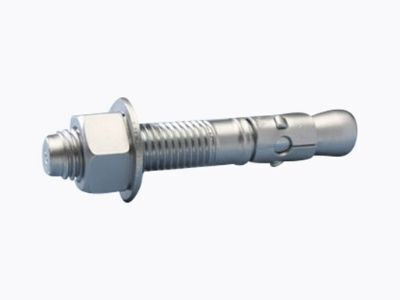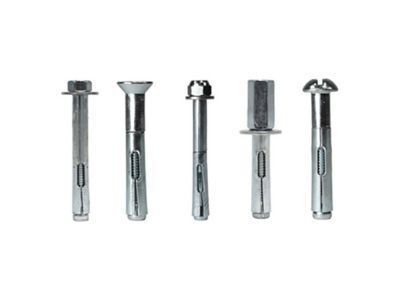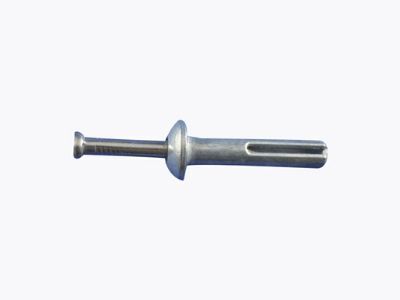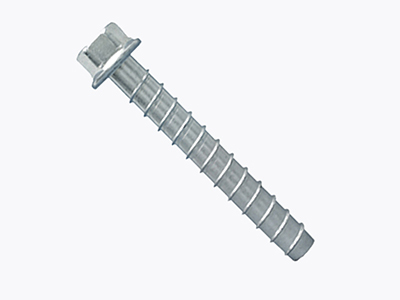
Anchor screws, also known as screw anchors, are an incredibly versatile and durable fastening method that can be used in a variety of different applications. They provide a secure bond between two materials, often making them the preferred choice for heavy-duty projects such as attaching structural supports or large equipment. This article will introduce the concept of anchor screws and discuss what they’re used for, before listing some of the most common types and their applications.
What Are Screw Anchors?
Screw anchors are specialized fasteners that provide excellent support for objects that would not be able to be secured with screws or nails. Made from plastic, steel, zinc, and other materials, these types of anchoring solutions come in an assortment of sizes and configurations perfect for any application. They work by expanding or gripping the material they are inserted into, in order to provide a secure hold.
Uses for Screw Anchors
Screw anchors are used for a wide range of applications, including:
- Hanging heavy objects, such as mirrors, shelves, or artwork, on walls made of drywall or plaster
- Attaching electrical boxes, conduit, and other fixtures to concrete or masonry walls
- Securing wall-mounted equipment in commercial and industrial settings
- Anchoring furniture and other large items to prevent them from tipping over
- Installing handrails, balusters, or other support structures in stairwells and walkways
Types of Screw Anchors and Their Applications
Expansion Anchors

Expansion anchors, more commonly known as wedge anchors, are constructed from galvanized carbon steel screws, with accompanying nuts and washers. Their deep threads make them perfect for use in concrete, masonry, and comparable materials; more budget-friendly alternatives are made using zinc-plated steel. Expansion anchors provide an immense grip due to their unique expansion mechanism which makes them indispensable for labor-intensive applications such as affixing structural supports or anchoring bulky machinery.
Sleeve Anchors

Sleeve anchors consist of a threaded stud with an expansion sleeve that expands as the stud is tightened, which creates a secure grip in masonry and concrete. They are commonly used to attach fixtures, such as handrails or shelving, to brick or block walls. Sleeve anchors are available in various sizes and materials, including stainless steel for corrosion resistance.
Hammer Drive Anchors

Hammer drive anchors are made of a metal pin with an expansion sleeve that is driven into a pre-drilled hole using a hammer. As the pin is hammered in, the sleeve expands and grips the material, to provide a secure hold. Hammer drive anchors are typically used for attaching electrical boxes, signs, and other light to medium-weight fixtures to masonry or concrete surfaces.
Hollow Wall Anchors
Perfect for hanging pictures, mirrors, and other lightweight to medium items on the wall, hollow anchors - commonly referred to as molly bolts - use an expandable sleeve that securely grips any weak or hollow material when tightened.
Toggle Bolts
Toggle bolts are a threaded bolt and a spring-loaded toggle, which opens and grips the backside of a hollow material when the bolt is tightened. Toggle bolts are ideal for hanging heavy objects, such as shelves, cabinets, or large mirrors, on hollow walls and they are available in various sizes and materials (metal and plastic) to accommodate different load capacities and applications.
Plastic Expansion Anchors
Plastic expansion anchors are made of a plastic sleeve that expands when a screw is inserted, to create a secure hold in solid materials. They are commonly used for light-duty applications, such as hanging picture frames, small shelves, or curtain rods. Plastic expansion anchors are available in various sizes and colors to match the material they are used with.
Self-Drilling Drywall Anchors
Self-drilling drywall anchors are made of metal or plastic and feature a sharp, self-drilling tip that eliminates the need for pre-drilling. They are ideal for hanging pictures, mirrors, or small shelves in drywall without the need for additional tools. Self-drilling drywall anchors are available in various sizes and weight capacities to accommodate different applications.
Chemical Anchors
Chemical anchors enable users to create an incredibly strong bond with whatever material they need. They consist of a threaded rod, specialized anchor sleeve, and chemical adhesives like epoxy or polyester resin. The adhesive is injected into the pre-drilled hole before inserting the anchor in place and allowed to cure. Chemical anchors are commonly used for securing structural supports, attaching large equipment pieces, or anchoring seismic restraints.
Acoustical Wedge Anchors
Acoustical wedge anchors are a valuable choice for projects requiring the installation of sound-absorbing ceiling panels, such as in commercial spaces, schools, or offices. These anchors provide a secure and reliable method for attaching the ceiling grid system to the overhead concrete structure, ensuring a safe and stable installation.
Concrete Screw Anchors

Concrete screw anchors are specifically designed with a tailored thread pattern for direct insertion into pre-drilled holes in concrete or masonry structures. As the screw tightens, its threads firmly begin to grip and bind to the material, to provide robust support even under heavy loads depending on anchor size and construction materials. This versatile anchoring system is suitable for light, medium, or heavy-duty applications.
One advantage of concrete screw anchors is their ease of installation. No additional adhesives or expansion components are needed, to make installation simple.
Concrete screw anchors can also be removed and reinstalled if necessary, which makes them a popular choice for various applications, such as attaching fixtures, supports, or equipment to concrete or masonry surfaces.
Lead Wood Screw Anchors
The lead wood screw anchor consists of a cylindrical lead sleeve with internal threading. A wood screw is inserted into the sleeve, and the anchor is then placed into a pre-drilled hole in the base material. As the screw is tightened, the lead sleeve expands, for a strong grip within the hole that creates a secure bond between the materials.
These anchors are particularly well-suited for projects where the base material is softer or more prone to crumbling, as the lead sleeve helps distribute the load evenly and prevents damage to the base material. They are commonly used in various construction and renovation projects, including attaching wood framing to masonry walls or fastening fixtures and supports to brick or concrete surfaces.
Fastener Systems Has Screw Anchors for Every Application
Regardless of the material you need to anchor to,Fastener Systems Inc. (FSI) carries a product that will work for your application. For more than three decades, we have been proudly providing the construction and manufacturing industry with exceptional service through speedy delivery services, top-of-the-line products, and a one stop shop experience of convenience.
Contact us today and let us help with your next order. For your convenience, we also offer a free online catalog!


